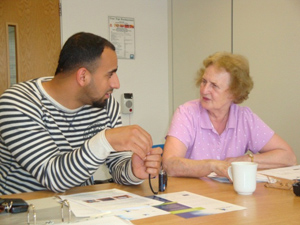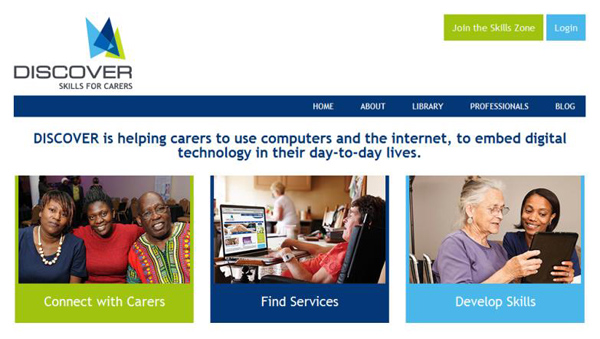Find out about The Open University's Health and Social Care courses and qualifications.
 Over a 100 million people in Europe care for a family member or friend. Many of them are caring for an older person and indeed many are older people themselves - caring for a spouse, sibling or parent who has reached great age.
Over a 100 million people in Europe care for a family member or friend. Many of them are caring for an older person and indeed many are older people themselves - caring for a spouse, sibling or parent who has reached great age.
As the populations in Europe increasingly age, pressure on formal care services will also increase leading to family carers being expected to take on increasingly complex roles. It is estimated that by 2025, 20 million more family carers will be needed across the EU.
But who cares for the family carers?
Family carers are likely to experience depression, anxiety and long-term health conditions, which can affect their ability to care and impact on their quality of life. Carers are also more likely to be living in poverty due to having to give up their paid work in order to provide full-time care. In our project over 60% of family carers were not in paid employment.
Our own research has shown that despite the various white papers from the UK Government supporting carers and the introduction of the Carer’s Assessment and Carer’s Allowance, many carers feel undervalued by society and looked down on by some people because of their caring role. Some carers, especially those who are full-time carers, feel excluded from society and may also report feeling lonely.
CarersUK has done much to champion family carers, raising awareness of their needs and bringing about policy change. Our project complements this. We talked to carers and they told us about how difficult it is to find information about local services and about the health conditions of the people they are caring for. This is especially true when people become a carer initially as often this is in response to a sudden crisis in the life of a relative or friend and people report feeling very unprepared. Some carers are able to attend carers’ meetings but for those with intense caring roles this is generally impossible and such carers would welcome alternative ways of talking with other carers in similar situations to themselves.
Supporting care workers
Many care workers employed by care agencies to support people living with long term conditions to remain at home, or working in residential care, wished to develop their use of technologies and to enhance their knowledge of health conditions. Carers, both paid and family carers were also unaware of the many assistive technologies available to support them and were excited when these were brought to their attention.
30% of Europeans are not online, yet older people who are online report feeling more in control of their lives and rarely feeling isolated or lonely so it is important that carers are able to use digital devices such as smart phones, PCs and tablet computers to take advantage of online offers, to keep in touch with family and friends, to chat with other carers and to access services and information. It is also important to pass these skills onto the people they care for as discussed in the video below.
In response to the needs of carers, the DISCOVER project has developed a Skills Zone, through interative design processes so that carers’ needs are at the heart of the development, to enable both family and paid carers to develop their digital and care skills. Feedback from carers across the four pilot sites in Greece, Spain, the Netherlands and the UK has been very positive. Many carers felt more supported through joining DISCOVER. Carers used their learning to improve the quality of their care, which was also observed by some employers of paid carers and by health care professionals caring for people supported by family carers.
Over 75% of carers who completed a questionnaire felt they had learned new skills and would recommend DISCOVER to another carer. In addition, paid carers would also recommend DISCOVER to their employers.
Want to find out more?
DISCOVER is freely available so join the Skills Zone to find out how technology can make your life easier. This is version is under beta-testing, which means there may be some remaining glitches.


Rate and Review
Rate this article
Review this article
Log into OpenLearn to leave reviews and join in the conversation.
Article reviews